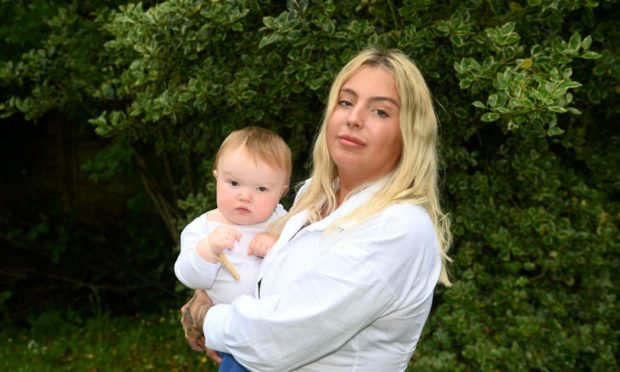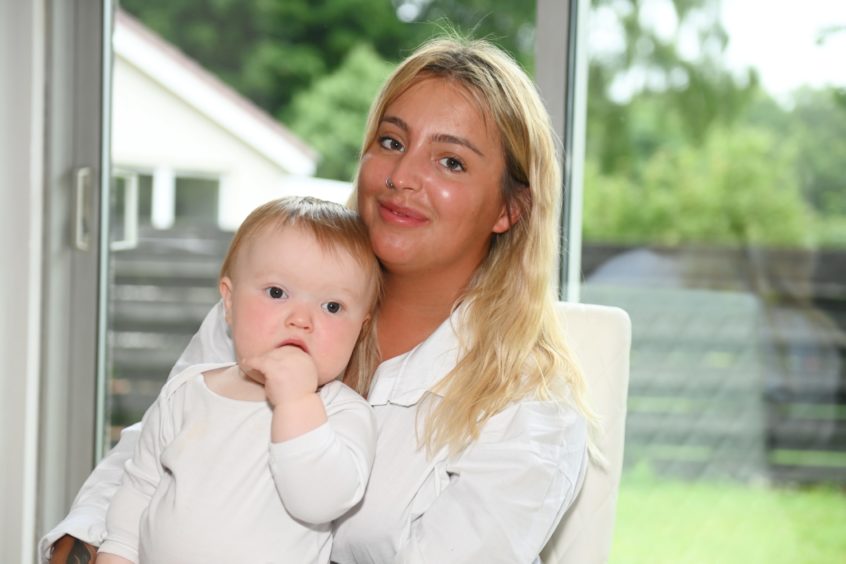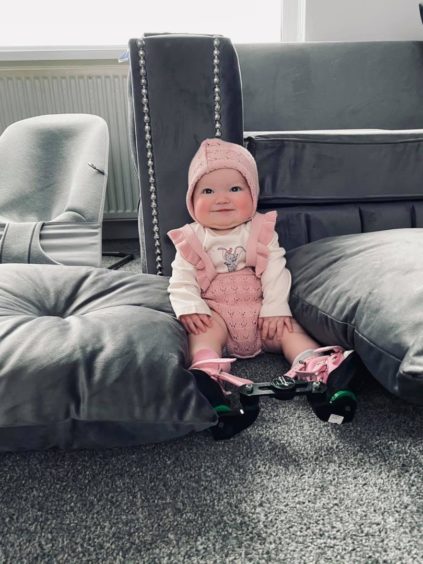An Aberdeen mum is hopeful more people will understand club foot after a Love Island contestant opened up about the condition.
Ten-month-old Dusty-Rose Duncan was born with club foot, and mum Rachael Duncan has been delighted to see Hugo Hammond shine a light on the condition in the ITV2 reality hit.
Club foot, also known as talipes, is where a baby is born with a foot or feet that turn in.
But, with consistent treatment, it can be corrected.
Baby Dusty-Rose had to wear casts for weeks at a time and even have a procedure called a tenotomy to cut her Achilles tendon, letting her ankle flex up.
Love Island star Hugo, a 24-year-old PE teacher, has opened up about being born with club foot, and Rachael hopes this will bring more awareness and understanding of the condition.
She said: “A lot of people don’t know what club foot is, and even if they do, I don’t think a lot of people realise the treatment you have to go through.”
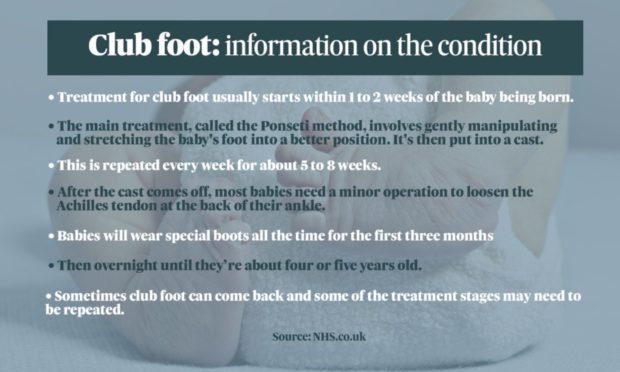
‘I would get dirty looks because she was in a plaster cast’
Rachael, 22 and from Bridge of Don, first found out about Hugo’s story in the headlines from people tagging her on social media about articles describing him as Love Island’s first physically disabled contestant.
She added: “I was really happy to see it, and I was actually kind of shocked.
“I never thought of it as a disability before, since it’s such a fast treatment and should be finished by the age of five.
“But it’s good to raise awareness and I am really glad to see it out on Love Island.
“Having it out in the limelight will probably have people looking at it like: ‘Oh, what’s club foot?’ and they’ll Google it.
“When Dusty was younger, she used to wear her plaster cast and people automatically assumed the worst.
“You would get these dirty looks, because people will just think ‘why is there a baby in plaster cast?’
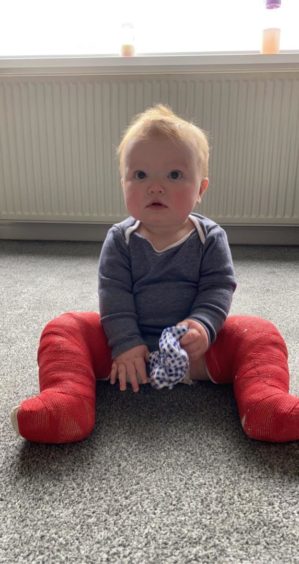
“They just don’t know the treatment – so you do get a lot of judgement.”
Rachael, an agency nurse, added: “I found out when I was 20 weeks pregnant, and it was difficult to begin with.
“She’s had a lot of treatment. She’s had 16 casts and a tenotomy.
“Now, she just wears a brace – belts with boots and a metal bar in between.
“She wears that from 4pm until 9am – she wears it right through and sleeps in it.
“But she’s taking it in her stride now and is doing really, really well.”
‘She would feel reassured she’s not alone’
While Dusty-Rose is too young to watch Love Island, Rachael is hopeful others with club foot can take reassurance from seeing the condition in the spotlight.
She added: “If this were her grown-up now, and she’s seeing that, it would make her feel really happy.
“Not that I don’t think she’s not normal at all, but if she were a teenager, that might be what she would be feeling.
“If they have to go through something different than what other children need to go through – they could feel a little bit off about it.
“But if they’re seeing these people, who are actually getting a lot of praise, and the fact that they’re on TV, it would be reassuring for her. It’s reassuring for me.
“It goes to show that they’re not doing it alone.”
Importance of support networks
Rachael was “distraught” when she first heard the news at her 20-week scan.
“You instantly take to Google – it doesn’t matter what your profession is, you know you shouldn’t be doing it, but you do it anyway,” she said.
“There’s a lot of scary stuff, but the hospital did a great job and reassured me.”
The treatment usually consists of six casts, the tenotomy, then wearing the boots-and-bar for 12 hours a day.
However, Dusty-Rose has atypical feet, which means they’re not responding to the procedures the way they should.
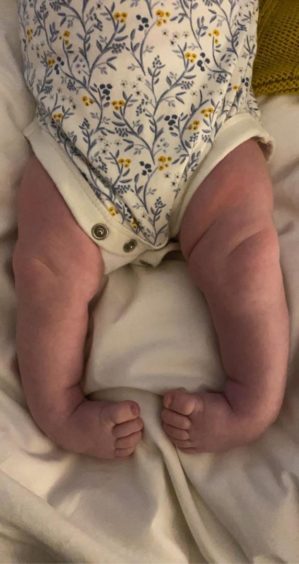
“She’s had excessive treatment and still isn’t at the normal hours that she should be in her boots-and-bar,” she added.
But her brace won’t be holding her back, with mum Rachael calling her a “resilient little girl” and anticipating she will be “the leader between all her siblings” when she’s older.
She added: “What I would say to people if their baby is ever diagnosed with this, is always try to speak to people that have been through it, rather than just Googling.
“Because I was just getting myself upset, and there are really good Facebook groups about club foot. They’re really good for information.
“When Dusty first went through the treatment, I used to post questions and people that have been through it would answer you, so that was good.”
Rachael emphasised the importance of a support network and recommended Clubfoot and Talipes UK and Clubfoot Support.
